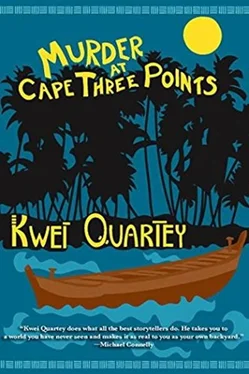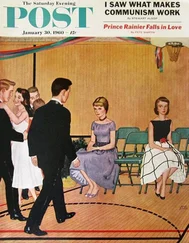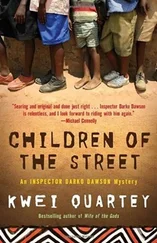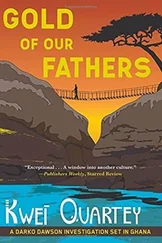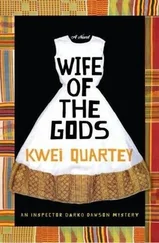Cardiman appeared shocked. “Oh, God, no! I would never do that.”
Dawson leaned forward and handed the warrant to Cardiman. “The district court has authorized us to search your office and living quarters.”
“Oh,” Cardiman mouthed, looking shattered as he read the warrant. “This is just awful. What do I have to do?”
“You may stand at the door,” Dawson said. “You should closely observe us as we search in order to reassure yourself that we do not plant any false evidence. Anything we remove, we will note for the record, and you will initial it to confirm that it is the item we have removed. Do you have any questions about the procedure?”
“No,” he stammered. “No, it seems quite clear.”
Appearing pale, Cardiman moved to the door and Dawson and Chikata began the search. They were looking for a firearm and/or any incriminating correspondence between Cardiman and Smith-Aidoo. It wasn’t an easy task. Cardiman was a disorganized man, and his office was a jumbled mess.
How does he run this place? Dawson wondered, as he looked in a drawer containing a fertility doll resting on an unruly pile of receipts from two years before. He glanced at Cardiman, whose expression had changed from shock to disgust.
They went on to the bedroom, which was quite unkempt with an unmade bed that smelled of stale sweat. It was not quite as packed with junk, and it took them less time to search it. There was nothing found and nothing to take away. Dawson had mixed feelings. It was not that he wanted Cardiman, specifically, to be guilty, but he had wanted so much to find something to finally get a break in the case.
He turned to Cardiman and offered a handshake, which he accepted uncertainly. “Thank you very much, sir,” Dawson said. “We apologize for the inconvenience.”
“Not at all, Inspector,” Cardiman said dully. “I suppose I should say have a nice day.”
ON THE WAY back to Takoradi, they discussed the encounter with Reggie Cardiman.
“What do you think?” Chikata asked Dawson.
“He hasn’t proved that he wasn’t involved in the murder,” he said, “and neither have we. He could be lying that he didn’t have a bad argument with Charles, and if he did, why at the end of that would he talk about such pleasantries like going up to the lighthouse for the beautiful view? So that he and/or someone else would have time to get into position to intercept them on the way back to Takoradi.”
Chikata was quiet for a moment. “At this point, Dawson,” he said finally, “whom do you suspect most? You have DeSouza who hated Fiona’s guts; there’s Jason Sarbah who blamed Charles for the death of his daughter Angela; Cardiman who might have felt deadly afraid that Charles was going to destroy his way of life; possibly some Akwidaa fishermen who didn’t want to be uprooted by Malgam; perhaps some members of some activist group like FOAX who want to stop Malgam in its tracks… have I missed anyone?”
“Yes, you have,” Dawson said. “Brian Smith-Aidoo, Charles’s bitter younger brother who was jealous of his success and his influence over Sapphire Smith-Aidoo.”
“Does he have an alibi?”
“He says he was at home all of Monday, the seventh of July, sick with gout. He lives alone, so it’s not confirmed.”
Chikata sat forward in the backseat. “Shall we go back to him and interrogate him again?”
“Yes, I think so,” Dawson said, “but I’ve been thinking about the juju angle to this case. I don’t feel like we have probed deeply enough into it. Baah, please take us to Kweku Bonsa’s shrine.”
“Yes, sir,” Baah said. He adopted a mocking tone. “So-called best fetish priest in Takoradi.”
“You don’t believe it?” Chikata asked.
“No, he’s just chopping people’s money.”
***
AS THEY ENTERED Bonsa’s shrine, Dawson discreetly commented to Chikata that he had expected much less. Three surprisingly modern buildings with four labeled consulting rooms surrounded a clean cement compound. Maybe Baah was right-Bonsa was making good money.
“He even has a website,” Chikata said.
“Are you serious?”
“Yes, look over there,” Chikata said, pointing his chin to a wall emblazoned with the URL.
They found an assistant and asked to see Mr. Bonsa.
“Please, you can wait for him,” the assistant said.
“ Mepaakyew ,” Chikata said politely, using the word for “please” in Akan, “tell him we’re policemen from Accra, and we don’t have time to wait.”
“Yes, please,” the man said, scurrying away.
Dawson looked at Chikata and smiled. “I like that. You asserted yourself well. And beat me to it, too.”
Chikata smiled. “I’ve already missed him once while he was doing his spiritual dance special. I’m not coming back a third time.”
The assistant returned. “Please, he says he can see you in ten minutes.”
Ten minutes turned out to be thirty, but by general standards, that was very good. Dawson and Chikata took off their shoes at the doorstep of Consulting Room One and entered.
A small pile of cowry shells in front of him, Kweku Bonsa was sitting on the carpeted floor of a slightly elevated stage around which four attendants stood. Bonsa was a slight man with a severe defect in the left side of his face as though it had been gouged out as a child. A pink, rigid scar tugged at the lower lid of his left eye, which watered constantly because it could not close completely.
One of the attendants prompted the visitors to introduce themselves. Dawson spoke on Chikata’s behalf, since the sergeant didn’t speak Fante.
Bonsa stared at them and nodded. “What problems do you have?” His voice was hoarse and scratchy.
“We are looking for the person who killed a man and his wife last July,” Dawson said, deciding on the blunt approach.
“Why have you come to me?” Bonsa asked.
“We want to know if it was a human sacrifice. The man was Mr. Charles Smith-Aidoo. He and his wife were shot, and then he was beheaded. Can I show you the picture?”
“If you want.”
He brought up the image on his phone and gave it to one of the attendants, who showed it to Bonsa. He looked at it for a moment with not even a twitch in his expression and then handed the phone back.
“I don’t deal in such blood practices,” he declared.
“I didn’t say you did,” Dawson said. “I’m asking your opinion.”
Bonsa leaned slightly forward and swept his hands back and forth over the cowry shells, scattering them. One of his assistants picked up the few that had strayed outside of reach and threw them back in the pile. Bonsa studied the shells as he muttered something inaudible. He repeated the cycle of scattering and studying twice, and then he looked up with the good eye narrowed to a slit.
“If someone is saying it is a sacrifice,” he said, “the person is uttering a falsehood. It is a killing of a different purpose. The one who did it is trying to make it seem like a human sacrifice.”
Dawson wasn’t sure if his next ploy would work, but he took the plunge. “I heard that in April of this year, a man came to you asking your help for his dying daughter.”
Bonsa stiffened and stared at Dawson for several moments. “Not me.”
“Then who?”
“I don’t concern myself with imposters.”
Dawson wasn’t sure what the priest meant. “You’re saying that this man consulted a fake fetish priest about his daughter?”
Bonsa blinked slowly but said nothing.
“Was the name of the man Jason Sarbah?” Dawson pressed. “What did that fetish priest instruct Mr. Sarbah? That he should have Mr. and Mrs. Smith-Aidoo killed in order to save his daughter?”
Читать дальше
